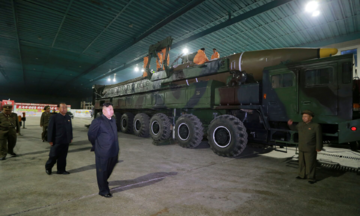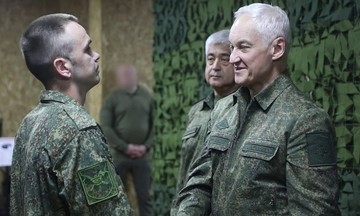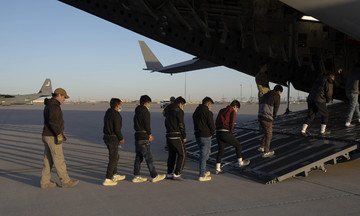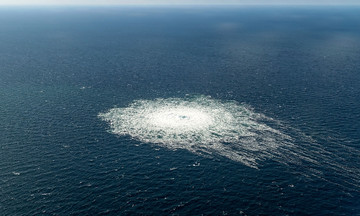"I don't think this ceasefire will last," Peyman, 57, a resident of Shiraz in southern Iran, said on 21/7. Shiraz was one of several cities attacked last month when Israel launched an unprecedented bombing campaign against Iran.
The Israeli attacks targeted key nuclear facilities and military bases, killing top commanders and nuclear scientists, and causing significant damage to some residential areas.
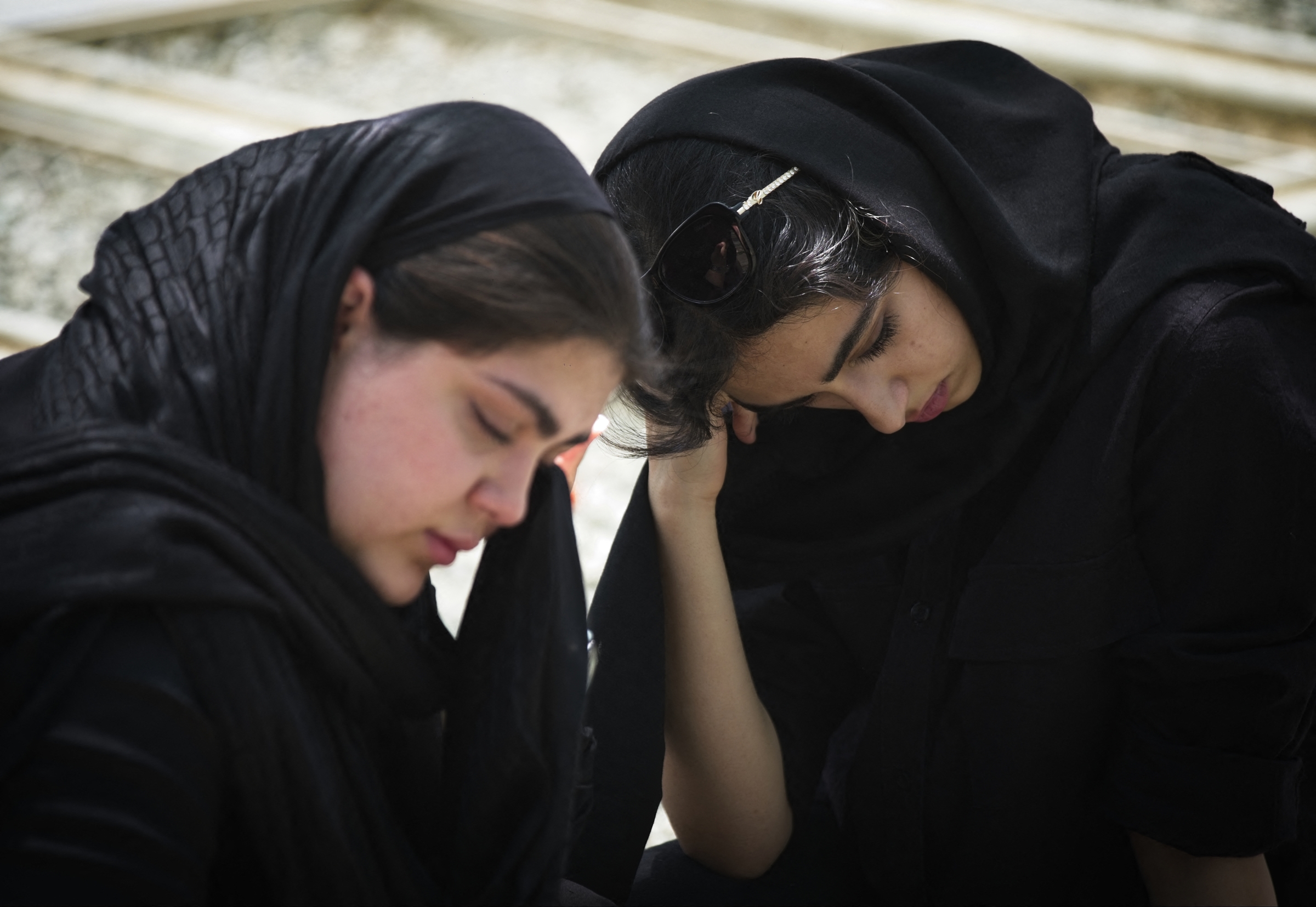 |
Two young Iranian girls at the grave of their friend in a plot dedicated to those killed in the 12-day war between Iran and Israel, at the Behesht-e Zahra cemetery south of Tehran, Iran, on 17/7. Photo: *AFP* |
The 12-day conflict, the fiercest in the history of Iran and Israel, ended with a ceasefire announced on 24/6. However, Israel has declared it could attack again if Iran rebuilds its nuclear facilities or takes any action Israel deems a threat to its security, such as developing an atomic bomb – an accusation Tehran consistently denies. For its part, Iran has vowed to respond forcefully to any further attacks.
Stalled nuclear diplomacy efforts between Iran and the US have exacerbated the uncertainty felt by Iranians.
"I'm afraid the war will return," said Hamid, a 54-year-old government employee. "More innocent people will die, and the country's infrastructure will be destroyed."
During the war, Israel struck major Iranian cities, including the capital Tehran, targeting military sites, government buildings, and the state television headquarters. According to Iranian officials, over 1,000 people were killed. Iranian retaliatory missile and drone strikes killed 29 people in Israel.
Many residents fled Tehran, seeking refuge elsewhere, though few areas remained untouched by the conflict.
"This war truly terrified me," said 78-year-old Golandam Babaei, from Kermanshah province.
She lived through the Iran-Iraq war of the 1980s, a traumatic memory for many of her generation. "I keep telling myself, 'Oh Allah, please don't let history repeat itself,'" she said.
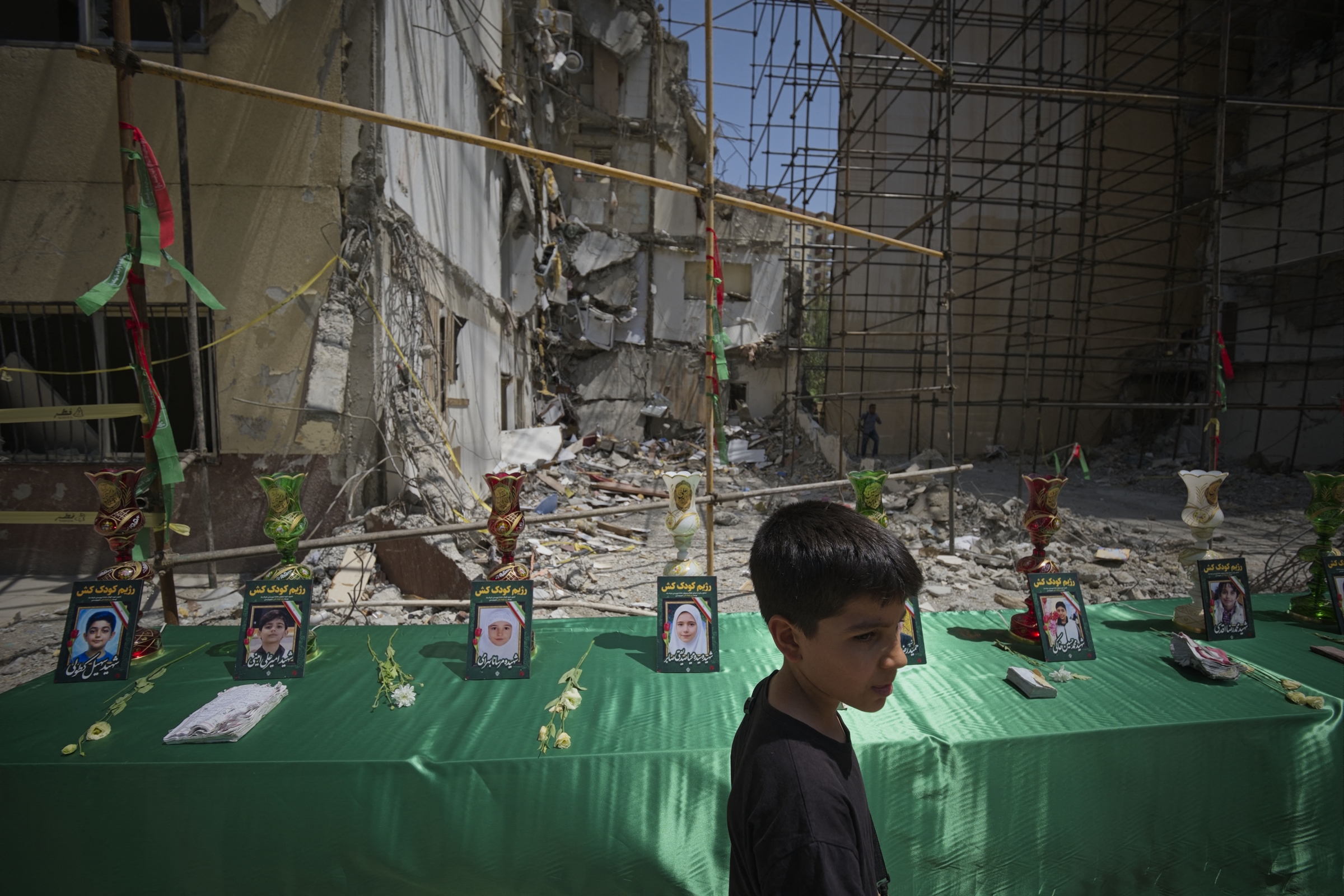 |
A 10-year-old boy walks past portraits of children killed in an Israeli airstrike on a residential area in Tehran during the 12-day war on 19/7. Photo: *AFP* |
The war with Israel, though much shorter and fought primarily through airstrikes and missiles rather than ground troops, evoked painful memories of the 1980-1988 conflict with Iraq, which claimed the lives of an estimated 500,000 people on both sides.
That war, which involved chemical weapons and artillery barrages across front lines, scarred Iranians at a time when the nascent Islamic republic was emerging from the 1979 revolution.
For decades since, Iran has largely avoided conflict within its borders. But now, after the 12-day war with Israel, some Iranians feel their security is incredibly fragile.
"I keep thinking, I don't want to have to flee again. We have nowhere left to go. I can't run to the mountains like I used to," Babaei said.
For Ali Khanzadi, a 62-year-old war veteran, the conflict with Israel highlighted a shift from the 1980s. "Now, with modern technology, they can kill a sleeping child remotely with a drone," he said.
Faced with Israeli threats and attacks, the Iranian government has repeatedly called for national unity. Supreme Leader Ali Khamenei claimed the attacks aimed to overthrow the Islamic republic's clerical regime. He urged Iranian diplomats and military officials to act "carefully and precisely" as the country treads cautiously.
Tehran has left open the possibility of nuclear diplomacy with the US, but officials are wary of further attacks and have demanded guarantees from the US to resume negotiations. Ordinary Iranians share this concern.
"I hope the conflict won't erupt again," Hamid expressed.
"I pray for peace, for us to be safe in our own homes," Babaei said.
Hong Hanh (*AFP*)



